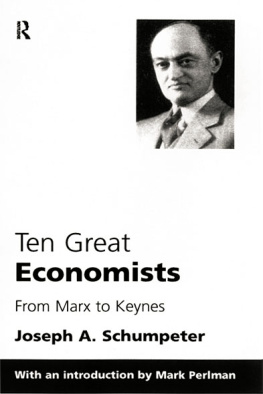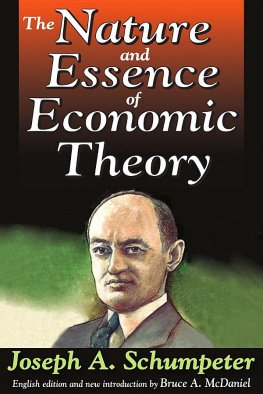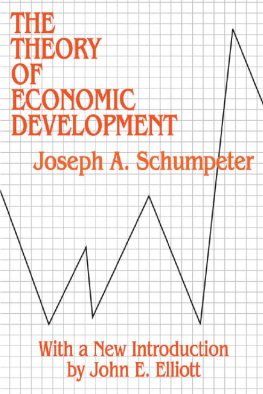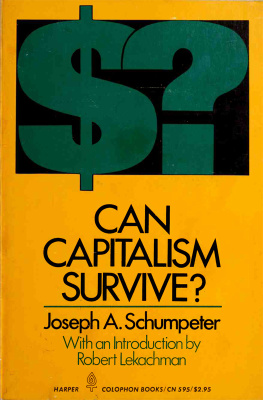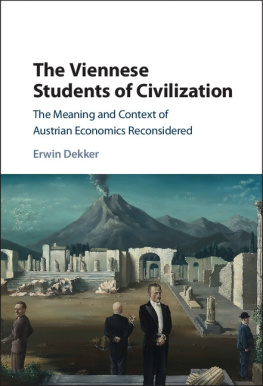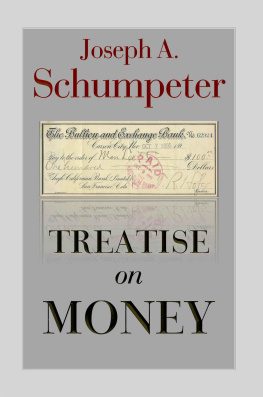First published 1952 by George Allen & Unwin Ltd
This edition published in the Taylor & Francis e-Library, 2003.
To purchase your own copy of this or any of Taylor & Francis or Routledges collection of thousands of eBooks please go to www.eBookstore.tandf.co.uk.
Reissued with new introduction 1997
by Routledge
11 New Fetter Lane, London EC4P 4EE
Introduction 1997 Mark Perlman
All rights reserved. No part of this book may be reprinted or reproduced or utilised in any form or by any electronic, mechanical, or other means, now known or hereafter invented, including photocopying and recording, or in any information storage or retrieval system, without permission in writing from the publishers.
British Library Cataloguing in Publication Data
A catalogue record for this book is available from the British Library
ISBN 0-203-20237-6 Master e-book ISBN
ISBN13: 978-0-203-20237-1 Master e-book ISBN
ISBN13: 978-1-134-83548-5 ePub ISBN
ISBN 0-415-11078-5 (hbk)
ISBN 0-415-11079-3 (pbk)
INTRODUCTION TO THE 1997 EDITION
Mark Perlman
IDEAS AND BIOGRAPHIES
JOSEPH Schumpeter did not accept Carlyles dictum that history was the acts of great men. Nor did he really accept the Marxian formulation that the dynamic forces in history were changes in social class relationships associated with the introduction of new technology. Rather, like Maynard Keynes, he thought that history was a matter of the interplay of ideology and intellectual analysis.
is the art of focussing an epoch and an environment in the story of an individual. First of all, therefore, the biographer must be a personality whose vision of that epoch on environment is worth having and whose temperament is strong enough to vibrate through his pages. Secondly, the biographer must be thoroughly master of the walks of life and ways of thinking of his hero. [A] third condition of successBiography, being essentially Art, calls for an artists hand. (Schumpeter, 1933)
Keyness approach, by way of contrast, focused first not on the epoch but on the personal details about the biographee, including a discussion of the subjects family and educational background. The two differed also when it came to making judgements. Schumpeter judged according to the purely scientific contribution; Keynes focused instead on the impact of the individuals contribution to the practical usefulness of the discipline. Schumpeters biographies reflected the grandeur of his opinion; Keyness, his sense of personal identification.
Generally, Schumpeters avoidance of personal projection was complete, but when exceptions were made, Schumpeter must have had his own prejudicial reasons. Why did he try to omit analysis of personalities and concentrate solely upon ideas in these essays? We have already indicated one reason. Like Keynes he believed that the world was run by madmen who were captives of earlier ideologies, but science was differentthere ideas, not passions, reigned.
But there are other reasons. Schumpeter was something of a raconteur as well as a consumer of gossip, and he had good reason for distrusting the usefulness of using events of a highly personal nature to explain ideas. It is not for nothing that Wolfgang Stolper, probably of all of Schumpeters students the one who had reason for knowing him best, subtitled his biography of Schumpeter The Public Life of a Private Man (Stolper, 1994). If there was much complexity in Schumpeters public life, there was as much (and likely a quantum-jump more) in his personal life. Schumpeter had entered the professional scene as an enfant terrible, perhaps the only way he could have achieved the early recognition he thought essential. He was brilliant, but by everyones assessment he carried his proclivity for being a poseur too long and too well. Possibly he did entertain the luxury of thinking that personal life could be kept private; alternatively he wanted only to give the appearance of asserting that personal things do not really count. Accordingly when it came to writing about others he did for them what he hoped would be done for him. For the sophisticated man he was, it was naively hopeful. But to me it does explain his formula.
This Introduction has four further parts. The next evaluates the volumes contribution to the history of economic thought. What then follows deals with the principal essays in turn and contains comments about each of them. After that I take up some of the remarks made by those reviewing the book during the 1950s. The final section considers the matter of schools of economic thought.
COMMENTS ON THE BOOKS PLACE IN THE HISTORY OF ECONOMIC THOUGHT
The survival quality of this collection
Arthur Koestler once mentioned that any author ought to be willing to trade 1000 readers at the time of publication for 100 ten years afterwards and for a single reader a century later. Here we have several essays attracting hundreds of readers nearly a century later. If our test is current relevance, then as for my pointQuod erat demonstrandem.
Ten tries should be expected to contain some relative clinkers, and that the collection is uneven relates to the presence of gems. I nominate the essays on Marx, Marshall, Pareto, and Bhm-Bawerk as masterpieces. The essays on Keynes and Mitchell are historic for other reasons. The remaining four (Walras, Menger, Taussig, and Fisher) although excellent are not of great historical interest. The postscripts, included at the suggestion of Professor Haberler, are obiter dicta.
Comments on the selection
At their best biographical essays may remain useful for some time, but after even a decade of their appearance they rarely appear fresh. It is now almost a century since the earliest of these were written. What is remarkable is that several still remain seriously provocative, and in that sense their freshness has been fully preserved. To have accomplished this much makes Schumpeter almost unique. Yet there are real problems. One set deals with the selection. and Mrs Schumpeter include some and exclude others? What they selectedgiven their range of choicereveals much that is positive as well as some (to me, at least) inexplicable things.
Of those included, let me summarize my view. Three of the essayson Bhm-Bawerk, Maynard Keynes, and Mitchellcould be said to reflect Schumpeters desire to set the final record straight. He had had differences, occasionally bitter and often lingering, with these men, and at times he had, as was his wont, expressed disparagingly facile remarks about them. That Mrs

